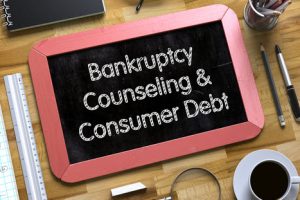Marsh Files Chapter 11; Seeks Buyer

Since 1931, thousands of Hoosiers have done most or all of their grocery shopping at a local Marsh Supermarket. But now, the company says it will close its 44 remaining locations if no one buys the chain within the next two months.
As recently as 2006, Marsh operated 120 stores in three states. But like many other small regional chains, the food retailer has struggled since then. Although it just closed twenty-one stores and sold its pharmacy business to CVS earlier this year, these moves were not enough to return the chain to profitability. In a Delaware Chapter 11 filing, the company estimated its assets at between $50 and $100 million, a level that is simply insufficient to service its $100 to $500 million in liabilities. Several landlords had sued Marsh’s alleging unpaid rents, development that probably prompted the filing.
Kroger and Pennsylvania-based Giant Eagle are rumored to be among the potential buyers.
What is Chapter 11?
Typically, only large companies file complex reorganization bankruptcies, but they serve the same purpose as consumer petitions.
The automatic stay, a feature of nearly all bankruptcies, prevents any entities from pursuing lawsuits, wage garnishments, foreclosures, repossessions, or any other adverse actions against debtors in bankruptcy, and this guarantee is one of the main reasons that people file. Chapter 11 has longer-term benefits as well, as debtors can sometimes cancel unfavorable contracts or vendor agreements and strike new deals under the protection of the bankruptcy court.
Available Consumer Bankruptcies
Both consumer bankruptcies include an automatic stay that gives consumers immediate relief from almost all adverse actions, even if the underlying debt is not dischargeable (forgivable in court).
Many people file bankruptcy because of high medical bills and other kinds of unsecured debt, and Chapter 7 usually discharges these debts in only a few months. This kind of bankruptcy also allows most consumers to keep most all their assets, because they are exempt from liquidation under state law. Some exempt assets include:
- Home equity,
- Retirement nest eggs, and
- Personal property.
Some dollar amount and other limitations apply to some of these exemptions.
On the other side of the ledger, Chapter 7 wipes out most unsecured debts, even things like back taxes and student loans, in some cases. If consumers choose to repay them, they can negotiate for more favorable repayment terms. As a result, they get a fresh financial start. To qualify for Chapter 7, debtors must earn less than the average for their household size in their particular geographic area.
Conversely, to qualify for Chapter 13, debtors must have sufficient income to repay their debts if they receive payment extensions, and the bankruptcy court gives such debtors up to five years to catch up on home mortgages, car notes, and other secured debts. At the end of the protected repayment period, any remaining unsecured debts are discharged.
Once the debtor emerges from bankruptcy, moneylenders may not discriminate against them simply because of their filing status.
Reach Out to Experienced Attorneys
Financially-distressed consumers have a number of legal options. For a free consultation with an experienced bankruptcy attorney in Chicago, contact the Bentz Holguin Law Firm, LLC. We handle cases in both Illinois and Indiana.
Resource:
indianapublicmedia.org/news/marsh-supermarkets-files-bankruptcy-seeking-buyer-119753/


